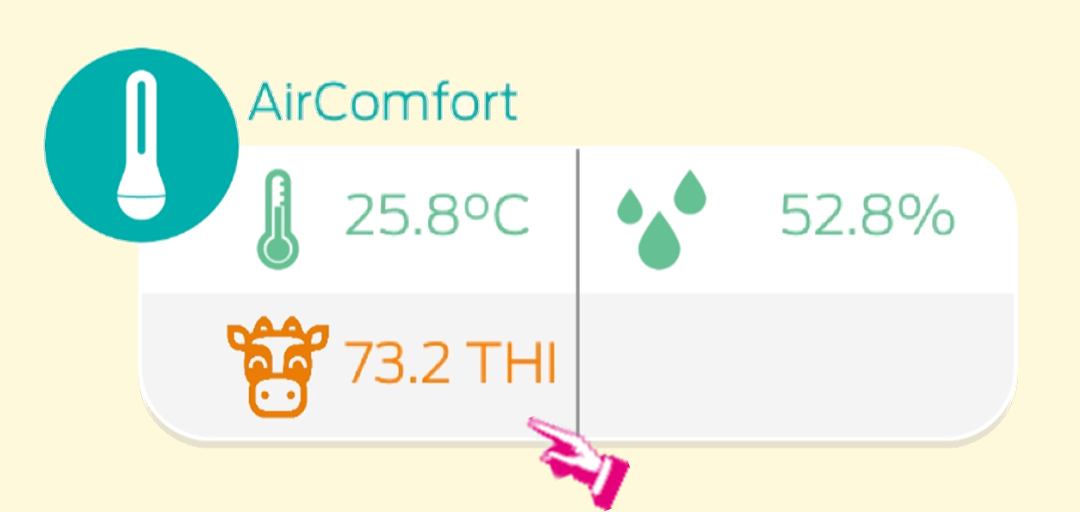What is THI?¶

A temperature-humidity index (THI) is a single value representing the combined effects of air temperature and humidity associated with the level of thermal stress. This index has been developed as a weather safety index to monitor and reduce heat-stress-related losses. Different animal species and humans have different sensitivities to ambient temperature and the amount of moisture in the air. Cattle can tolerate much higher temperatures at lower relative humidity than swine. This is due to the fact that cattle can dissipate excessive heat more effectively by sweating, whereas swine do not have sweat glands. However, during hot and humid weather the natural capability of cattle to dissipate heat load by sweating and panting is compromised, and heat stress occurs at these conditions in cattle much faster than in swine
Source: Science Direct
Where is THI used?¶
Research has identified THI values above which heat stress begins. These THI values vary between the different livestock species of interest and within the same species, they vary for the different classes of animals.
Normally THI is used in cattle breeding, both in dairy and in meat cows. Cows are indeed very delicate animals, which suffer a lot of heat stress with serious consequences on their productivity and on the quality of their final output. This happens because a large part of the energy deriving from food is used to maintain a constant body temperature and it is therefore not destined for other activities (milk production, growth, pregnancy, fattening, etc.).
Source: pericoli.com